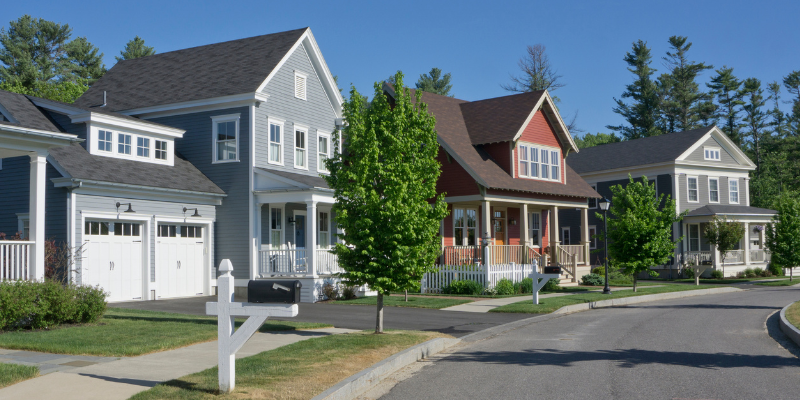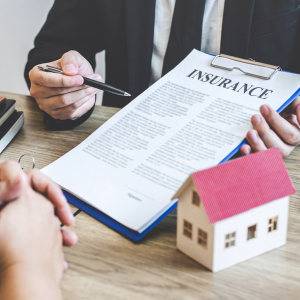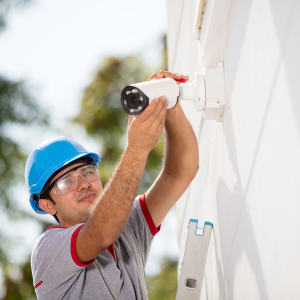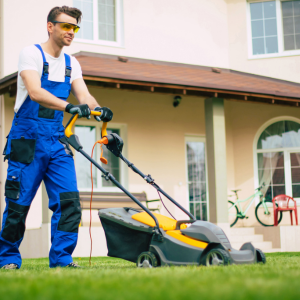
Understanding Property Vacancy Laws in Virginia
Knowing Virginia’s vacancy laws is essential for homeowners who wish to leave their homes idle. These laws deal with issues like the house’s upkeep and safety, the home’s security, and the risks of leaving such a property unoccupied for a long time.
If property is left unattended for a long time, it is at risk of theft, vandalism, and slow deterioration. Virginia law likely mandates absentee property owners to abide by some minimum conditions to ensure that at least the outside of the house is presentable and does not bring down the value of the neighborhood.
Furthermore, policies hold clauses concerning vacancy, which, if violated, may lead to unpaid claims for damages suffered. Consequently, it is wise for homeowners to review insurance policies and resort to measures such as engaging property managers or reliable neighbors who can regularly check the house.
Understanding these legal obligations and potential risks helps safeguard Virginia homeowners’ property and financial interests during vacancy periods. Kingfisher House Buyers can help by monitoring the property, coordinating upkeep, and ensuring compliance with local ordinances and insurance requirements.
Legal Implications of Leaving Your Home Unoccupied
In Virginia, empty properties must adhere to specific state guidelines, municipal zoning rules, and HOA regulations concerning upkeep, security, and other relevant matters. Uninhabited properties tend to invite a host of legal concerns, especially about upkeep and maintenance.
Concerned home sellers and investors who sit on unoccupied properties do not realize the financial risk of poor maintenance. Following a guide to selling your house without a realtor can help you better manage the property, reduce holding costs, and avoid unnecessary expenses while staying in control of the entire sale process. Houses that are left unoccupied are often the target of criminals and other malicious activities, leading to potential legal issues. Insurers also demand consistent communication about the property’s status and associated coverage. Most insurers avoid empties due to the lack of communication stipulations associated with vacancy policies.
Homeowners must review their insurance policy terms carefully and notify their insurer when a property will be left unoccupied for extended periods. Understanding these legal obligations helps prevent complications such as vandalism, trespassing, or code violations, which can lead to costly repairs and legal issues.
Key Considerations for Extended Home Vacancies
People leaving their residences for an extended period, notably from Virginia, must take a few steps to ensure legal compliance and wealth protection. One key consideration is the insurance policy; most standard homeowners insurance policies come with a rider for uninhabited homes for more than 30 or 60 days that provides vandalism and theft protection.
Regarding theft and vandalism, weather-related damages, and neglect due to lack of maintenance can also be covered by informing your insurer about spending extra time away, which may require additional payment for special vacant home insurance. Just as relevant is safeguarding the home. A trustworthy neighbor or management company conducts regular inspections, including occupancy ruses, light timers, and other advanced security measures.
In Virginia, insulating pipes during the cold months is critical to avert expensive water damage. Homeowners should also ensure that mail and newspapers are either collected regularly or put on hold during the freeze so as not to expose the empty house.
Maintaining the lawn and scheduling periodic inspections can help prevent municipal fines or HOA penalties for neglecting upkeep standards. By addressing these considerations, homeowners can better protect their investments while complying with local regulations during prolonged absences.
Insurance Requirements for Vacant Homes in Virginia

Understanding how to insure vacant properties is vital for safeguarding your investment from loss, vandalism, theft, and damage from the elements, especially in Virginia. Like most standard homeowners’ insurance policies, standing residences suffer from a moratorium that excludes coverage for unoccupied houses for over a month.
Vacant home insurance fills the gaps in coverage left by primary home policies. These policies safeguard against absence problems by insuring against particular perils such as fire, windstorm loss, and liability for injuries occurring on the premises.
Informing your insurance company about a vacant period for your house is crucial so there are no gaps in coverage, which may result in denied claims. Also, routine inspections and maintenance can help reduce risk factors, which some insurers may require to retain coverage.
This information helps Virginia homeowners protect their investments and minimize unplanned costs when living away from their properties. If you need help managing your vacant property or understanding your insurance responsibilities, contact us today.
Preparing Your House for Long-term Vacancy
Vacancy preparation in Virginia involves managing dozens of state-specific rules and potential risks of leaving a property unoccupied. Houses left unoccupied for long periods are much more susceptible to break-ins or vandalism, which can lead to considerable financial losses.
A proper minimum precaution to take in mitigating these risks is to install a local law enforcement-monitored security system. While a home is unoccupied, taking care of issues such as landscaping contributes to its overall condition. Landscaping, when neglected, creates the impression that the house is unoccupied and attracts unwanted attention or draws the ire of local ordinances.
Addressing routine plumbing leaks and repairing roofs is equally vital since these maintenance issues can result in extensive damage over time. Homeowners must inform the insurance firm about the extended vacancy period, as some policies have clauses regarding coverage during these timeframes.
Shutting off unneeded utilities can prevent water damage from burst pipes during winter. During these months, it may also make sense to hire a property manager to do regular inspections to follow Virginia’s laws about vacant houses and keep the house in good shape while you’re not there.
Security Measures for Protecting an Empty Property
In Virginia, keeping a vacant house secure from squatters, theft, or vandalism is essential. With the fully automated security systems available today, surveillance of the areas through cameras and motion detection is possible. These systems can detect any unusual movement and neutralize an intruder before he reaches the house.
Ensure that all perimeter access points, such as doors and windows, are secured with high-grade locks and bolted shut to help prevent unauthorized access to the property. Moreover, applying light timers resolves the concern by establishing periods during which lighting is automated. This configuration provides the illusion of the house being occupied, rendering the home less attractive to opportunistic burglars.
Scheduled check-ins from trustworthy neighbors or even hired property management companies can enhance visibility around the home. Moreover, actively managing the yard, including mowing the lawn and gathering mail, helps maintain the circumstantial appearance of the occupied property.
By taking these proactive steps, homeowners can significantly reduce the risks of leaving their property vacant in Virginia.
Strategies to Avoid Squatters in Unoccupied Homes

Protecting your Virginia home from squatters when it is vacant involves implementing solid measures while the house is unoccupied. An essential step would be conducting routine property inspections to ascertain that it is not vacant and deteriorating.
A reliable neighbor or a property management firm can perform regular checks on the vacant house, preventing potential squatters. Security systems with motion and video cameras can also alert the owner to any unauthorized activities around the house and furnish reliable evidence of an intrusion.
Signboards that inform about surveillance facilities can also act as the first line of protection. Additionally, keeping utilities like electricity and water in service ensures the home appears lived-in, while using timers for lights simulates activity throughout the day.
Completely locking off doors, windows, and garages secures the home from intrusive access. Stopping the delivery of unmonitored mail or newspapers removes obvious signs of vacancy and helps prevent someone from targeting your property.
Getting local police to do sporadic drive-by checks adds to your Virginia home’s security and reduces squatting risk. These measures increase police presence, which helps deter stragglers when your home is unoccupied.
Managing Utilities and Maintenance for Vacant Properties
While managing utilities and maintaining vacant properties in Virginia, homeowners must be cautious to prevent several risks and problems. It’s critical to confirm that all necessary utilities, including water, gas, and electricity, are either correctly dialed down or turned off to avoid damage or unnecessary spending.
Frequent property checks are essential for timely recognition of maintenance concerns like leaks or other damages. Regularly scheduled checks also aid in retaining the property’s state and value.
Utilizing smart home technology allows homeowners to monitor utility usage remotely, providing peace of mind and enhanced security. Additionally, hiring a professional property management service can be beneficial for overseeing routine maintenance tasks and keeping up with local regulations.
Understanding these aspects helps mitigate risks associated with leaving a house vacant in Virginia while ensuring the property remains secure and well-maintained.
Financial Impacts of Long-term Home Vacancy
In Virginia, not occupying a house for a long time can incur financial losses. Homeowners face increased insurance premiums as unoccupied houses are seen as a liability by insurance companies, which can lead to costly premiums, denial of insurance, or even expensive policies.
Alongside this, a lack of attention to regular maintenance leads to greater neglected routine issues. Without regular checks, leaks, pest infestations, or other routine problems in a house go unnoticed, leading to substantial, costly damage over time.
Moreover, vacant properties are often targets for vandalism and theft, leading to further unexpected expenses. The lack of occupancy can also negatively impact property value; prospective buyers, including investor house buyers in Fredericksburg and other Virginia cities, may perceive the home as less desirable if it shows signs of deterioration.
Furthermore, homeowners must continue to pay utilities and property taxes despite not residing there, which adds another layer of ongoing financial responsibility without the benefit of rental income to offset these costs.
Steps to Rent or Sell a Vacant Home Efficiently
To rent or sell a vacant home efficiently in Virginia, it’s crucial to understand the specific steps involved in preparing and marketing the property. First, ensure the house is thoroughly cleaned, and necessary repairs are completed to enhance its appeal.
Consider a professional inspection to identify potential issues hindering a sale or rental agreement. Effective staging can make the space more inviting for prospective buyers or renters, so investing in this aspect can be beneficial.
Conduct thorough market research to set a competitive price that reflects current real estate trends in Virginia. Hiring a skilled real estate agent with experience in vacant properties can significantly streamline the process by tapping into their network and expertise.
A comprehensive advertising strategy utilizing online platforms and local listings will also increase visibility among potential buyers or tenants, including cash home buyers in Virginia. Understanding and complying with Virginia’s legal requirements for rental agreements or property sales is vital to avoid future complications, including securing the necessary permits and ensuring all paperwork is accurately prepared and filed.
Finally, implementing security measures such as alarm systems or regular property checks can protect the vacant home from potential risks while it is on the market.
Seasonal Maintenance Tips for Uninhabited Residences

When leaving a house vacant in Virginia, especially during seasonal changes, it’s essential to follow specific maintenance tips to mitigate potential risks. Start by ensuring that the home is appropriately secured; check all locks on windows and doors to prevent unauthorized access.
Regularly inspect the property for signs of damage or trespassing. To protect against cold weather, winterize plumbing by draining pipes and adding antifreeze to prevent freezing and bursting.
Gutter cleaning is crucial to avoid water damage from clogged channels during heavy rain or melting snow. Trimming trees and shrubs maintains the yard, keeps the property cared for, and prevents limbs from causing damage during storms.
Setting up indoor and outdoor lights on a timer creates the illusion of occupancy, which can deter prospective burglars. An effective security system equipped with motion detectors offers an extra layer of protection for an unoccupied home.
Lastly, changing the address where mail is sent to conceal documents mitigates signals indicating the house is unoccupied while allowing essential documents to be received. Despite the constantly changing weather, these steps measure risk reduction when leaving a house unmonitored in Virginia.
Community Regulations on Unoccupied Houses in Virginia
In Virginia, understanding community regulations on unoccupied houses is crucial for homeowners planning to leave vacant properties. Local ordinances and homeowners’ association rules may apply to maintain neighborhood aesthetics and prevent potential issues with unattended homes.
These regulations often require property owners to ensure that the vacant house’s exterior remains well-maintained, including regular lawn care and prompt repairs of visible damage. Additionally, some communities mandate periodic inspections or impose security measures such as alarm systems or security lighting to deter vandalism and illegal activities.
Failure to comply with these community regulations can result in fines or other penalties, highlighting the importance of staying informed about specific requirements in your area when leaving a house unoccupied in Virginia.
How Long Can a Property Remain Unoccupied Legally?
In Virginia, understanding the legal implications and risks associated with leaving your property unoccupied is crucial for homeowners. While no specific state law limits how long a property can remain vacant, homeowners should be aware of local ordinances or homeowner association rules that might impose restrictions.
Moreover, insurance companies often have policies regarding vacant homes, typically defining a property as “vacant” after 30 to 60 consecutive days without occupancy. If not adequately addressed, this can lead to changes in coverage terms or even policy cancellation.
Additionally, prolonged vacancy can increase risks such as vandalism, theft, or unnoticed maintenance issues like water damage or pest infestations. Property owners must communicate with their insurance providers, review their policies to ensure continuous coverage and take preventive measures to secure their homes during extended vacancy periods.
How Long Before Property Is Considered Abandoned in VA?
Understanding the timeframe in which a property is considered abandoned is crucial for homeowners who plan to leave their house vacant. According to state laws in Virginia, the definition of abandonment typically depends on several factors, including the duration of vacancy and the homeowner’s actions during that period.
Generally, if a property remains unoccupied for an extended period without any signs of maintenance or communication from the owner, it may be deemed abandoned. Local ordinances and homeowner association rules may also influence this determination.
Homeowners must know these regulations to avoid legal implications or penalties for abandoning their property. To mitigate risks related to abandonment, it’s advisable for those leaving their houses vacant in Virginia to inform neighbors or local authorities, maintain regular upkeep, and ensure timely payment of utilities and taxes.
Understanding these rules helps protect your investment and ensures compliance with Virginia’s property regulations.
How Long Can a House Stay Vacant?
When considering how long a house can remain vacant in Virginia, it’s important to understand the implications and risks of leaving your property unoccupied. There is no specific legal limit on this; however, extended vacancy periods can lead to various issues that homeowners need to be aware of.
Insurance policies often have clauses that affect coverage if a home is unoccupied for more than 30 to 60 days, potentially increasing liability for property damage or theft. Moreover, an empty house may attract vandalism and deterioration due to a lack of maintenance and oversight.
Homeowners should regularly inspect their vacant properties and ensure security measures are in place. Complying with local ordinances regarding property upkeep is also crucial to avoid fines from municipal authorities.
Understanding these rules and potential risks will help homeowners effectively manage their vacant properties in Virginia while ensuring compliance with insurance requirements and local regulations.
What Is Property Abandonment?
Property abandonment, particularly in Virginia, refers to leaving a property unoccupied and unattended for an extended period. Understanding the rules and risks associated with property abandonment is crucial for homeowners who may need to leave their houses vacant.
In Virginia, a property deemed abandoned can lead to serious legal and financial repercussions. The state defines specific criteria for determining when a home is abandoned, including lack of occupancy, failure to maintain the premises, and neglect of utility bills.
Homeowners must know these factors to avoid penalties such as fines or loss of ownership rights. Abandoned property can also attract vandalism, theft, and squatters, posing further risks.
Therefore, understanding Virginia’s laws on property abandonment is essential for safeguarding one’s investment while ensuring compliance with local regulations.
Do you have to sell your house? Sell fast, avoid expensive repairs, or want an easy sale. Kingfisher House Buyers is here to help you. We make the process easy by handling all the details and giving you a fair cash offer. Are you ready to sell, or do you have questions? For a free quote, call us at (540) 755-4099. Start today!
| LANDLORD AND TENANT | LANDLORDS AND TENANTS | SQUATTER’S RIGHTS | OPEN AND NOTORIOUS | ADVERSE POSSESSION | STATE OF VIRGINIA |
| LANDLORD | TAXATION | PROPERTY OWNERSHIP | NOTICE TO QUIT | EVICTION | EVICTION NOTICES |
| EVICT | RENTAL PROPERTY | TRESPASSER | LEASES | TENANCY | MONEY |
| LAWYER | ATTORNEY | INFORMATION | DWELLING | HOMEBUYERS | DISABILITY |
| DISABILITIES | FORECLOSURE | FORECLOSED UPON | NUISANCES | MORTGAGE | |
| UNCLAIMED PROPERTY | TERMS OF USE | SHERIFF | PROBATE | PRIVACY | MOLD |
| JUDGE | DEED | CODE OF VIRGINIA |
Helpful Virginia Blog Articles
- Taxes On Selling Your Home In Virginia
- Selling An Inherited House In Virginia
- House Sale Contingencies In Virginia
- Attorney Fees For House Closings In Virginia
- Selling A Home With Code Violations in Virginia
- Selling Your Virginia Home With Unpermitted Work
- Selling a Home With Foundation Problems in Virginia
- Understanding Virginia Inheritance Laws
- Sell Your House Below Appraised Value In Virginia
- Paperwork For Selling Your Home By Owner in Virginia
- Selling Your Virginia Home With Tenants
- Virginia’s Rules And Risks For Leaving Your House Vacant

